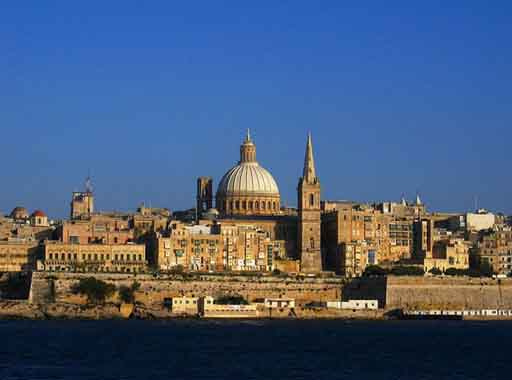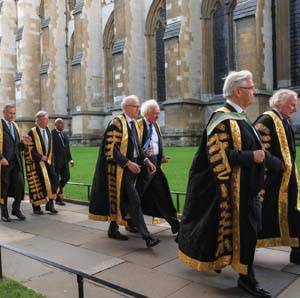
What the law says
Article 163 of the Maltese Criminal Code: Whosoever by words, gestures, written matter, whether printed or not, or pictures or by some other visible means, publicly vilifies the Roman Catholic Apostolic Religion which is the religion of Malta, or gives offence to the Roman Catholic Apostolic Religion by vilifying those who profess such religion or its ministers, or anything which forms the object of, or is consecrated to, or is necessarily destined for Roman Catholic worship, shall, on conviction, be liable to imprisonment for a term from one to six months.
Article 164 of the Maltese Criminal Code: Whosoever commits any of the acts referred to in the last preceding article against any cult tolerated by law, shall, on conviction, be liable to imprisonment for a term from one to three months
Article 342 of the Maltese Criminal Code: In respect of the contravention under article 338(bb), where the act consists in uttering blasphemous words or expressions, the minimum punishment to be awarded shall in no case be less than a fine (ammenda) of eleven euro and sixty-five cents (11.65) and the maximum punishment may be imprisonment for a term of three months.
Article 2 of the Constitution of Malta:
(1) The religion of Malta is the Roman Catholic Apostolic Religion.
(2) The authorities of the Roman Catholic Apostolic Church have the duty and the right to teach which principles are right and which are wrong.
Article 41(1) of the Constitution of Malta: Except with his own consent or by way of parental discipline, no person shall be hindered in the enjoyment of his freedom of expression, including freedom to hold opinions without interference, freedom to receive ideas and information without interference, freedom to communicate ideas and information without interference (whether the communication be to the public generally or to any person or class of persons) and freedom from interference with his correspondence.
How the law is used
Malta is known as a popular travel destination, and for housing a thriving British expat community. Malta is also one of the most religious countries in Europe, with over 95 per cent of its population belonging to the Catholic Church. The small island nation is also one of the few European Union members to have an actively used blasphemy law. In 2012, 99 people were convicted of “public blasphemy” in Malta. While the number seems high, it may also be viewed as an improvement on the previous year’s 119 sentences. The number of blasphemy convictions in Malta has been large for years. Some observers have estimated that there may be as many as five people charged for blasphemy or “offensive language” per day.
Unsurprisingly, most blasphemy cases are brought by Catholics, and often include accusations of obscenity or indecency. A rather famous case occurred in 2009, when seven people were arrested for “vilifying the Catholic religion” at the annual Nadur carnival. The carnival attendants had dressed up as nuns and Jesus. Local Bishops found this terribly insulting, and called for legal action to defend the rights of the (Catholic) majority. The people in nun costumes were later acquitted because the court decided that nuns were not “ministers of the Catholic religion” and therefore not protected by the law. The man dressed as Jesus, however, received a suspended sentence of one month’s imprisonment.
According to the Maltese constitution, the authorities of the Catholic Church have “the duty and the right to teach which principles are right and which are wrong”. Catholic conservatism thus predictably influences decisions on censorship of art and writing to protect the public morals. In 2009 a university newspaper was closed down and its editor charged for “obscenity” and “inciting pornography” for publishing an erotic short story. The writer of the story was also charged in 2010. They were finally acquitted in 2012, when the courts failed to find enough evidence for how the student’s story had offended public morals. Similarly, the theatrical play Stitching was banned in 2009, a decision that has since been upheld by several levels of courts. The Scottish play (unseen by the judges) was deemed immoral, blasphemous and racist, even though it has been performed without much controversy in several other countries. Interestingly, in 2004 the ultra-violent and allegedly anti-Semitic film Passion of the Christ was rated suitable for children over 12 years old and received praise from Maltese Catholic priests.
The influence of the Catholic Church is also clearly visible in the way that divorce and abortion are legislated in Malta. Divorce became legal in the country in 2011, making Malta the very last European country to allow the practice. However, a divorce can only take place after four years of separation, and in some cases, dissolving of a Catholic marriage may still be vetoed by Ecclesiastical Tribunals due to a treaty between the Maltese government and the Vatican. A revision of this agreement is underway at the moment. Abortion remains illegal in all cases, even if the mother’s life is at risk. Malta is the only European Union member to have such a ‘blanket ban’, for which it has been repeatedly criticised internationally.
The politics of Malta are dominated by the centre-left Labour Party, and the conservative Christian-democratic Nationalist Party. The Nationalist Party has been the majority party except for one term of Labour rule for the past 30 years, which may partly explain the country’s conservative line. But, even though the Labour Party won the March 2013 elections, there is little reason to expect major secularisation to suddenly take place. In reality, there is barely any public discussion of reforming the abortion bans and very little opposition to the blasphemy convictions from the general public. Nevertheless, abortions do not stop happening if they are outlawed – many Maltese women leave the country to obtain the procedure, or are forced to undergo dangerous illegal operations. Blasphemy convictions, especially in such high numbers and for such arbitrary cases, waste time and money. They also go against the freedom of speech and expression guaranteed by the Maltese constitution. The restriction of art to protect public morality seems old-fashioned and disproportionate – if Biblical brutality is fine for pre-teens, it is odd that a university student’s erotic writings should be banned.
But Malta is an EU country, and thus it is not possible for it to remain isolated in its conservatism. Indeed, the divorce legalisation went through without much controversy. The slow, but positive progress of LGBT rights also suggests that there is hope for more secular developments in the future: in 2012, sexual orientation and gender identity were included in the Maltese hate-crime law; and in April this year the new PM Joseph Muscat established a consultative council to advise on introducing civil-partnership to same-sex couples, thus fulfilling one of his main election promises. Such developments seem to suggest declining political conservatism and Catholic influence in Malta.
What you can do
If you are interested in the blasphemy, humanism or secularism situation, you may consider contacting the Malta Humanist Association

